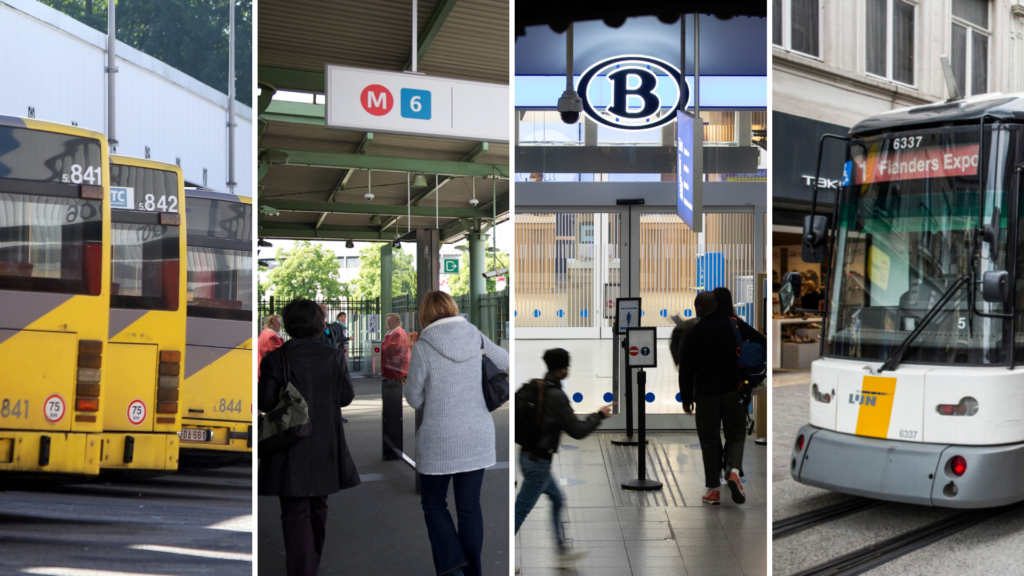Like many things in Belgium, public transport is anything but coherent and travelling between the regions can be complicated.
Belgium's public transport networks are largely fragmented between the regions – except the railway system. As a result, prices, timetables and travel passes differ depending on where people live and to where they are commuting.
This guide explains the various transport operators to simplify your journeys.
The basics
Four companies are in charge of public transport in Belgium. The national rail operator SNCB (or NMBS in Dutch) oversees train travel across the country, from the north of Flanders through Brussels to near the southern border with France.
In the Brussels Region, public transport operator STIB (or MIVB in Dutch) manages trams, buses and Belgium's only metro network. De Lijn operates bus and tram networks in Flanders while TEC handles buses in Wallonia.
Belgium has trams in Brussels, Antwerp, Ghent and Charleroi and on the Flemish coast, where De Lijn operates the Kusttram from Adinkerke at the border with France to Knokke near the Netherlands. A tram line will soon open in Liège. A metro line is expected to reopen in Charleroi in 2027.
Train travel
Belgium's rail network consists of 3,615 kilometres of main track and 214 kilometres of high-speed lines. STIB operates more than 3,800 trains every day, passing through 550 stations and stops, serving 750,000 daily passengers. Services usually start after 05:00 and stop between midnight and 01:00.
There are different types of trains:
- InterCity (IC) trains connect Belgium's biggest cities and only stop at the most important stations. They sometimes even cross the borders.
- Peak-hour (P) trains are extra trains during peak hours in the morning and late afternoon. They run between popular commuter destinations, often between smaller towns and a major city;
- Local (L) trains are the so-called commuter trains. Like IC trains, they serve major cities but they stop in every station on the way, meaning the journey takes longer;
- S trains are the suburban trains running at fixed times around Brussels, Antwerp, Ghent, Liège and Charleroi. The network has a perimeter of about 30 kilometres around each city. The stops link to the regional public transport networks.
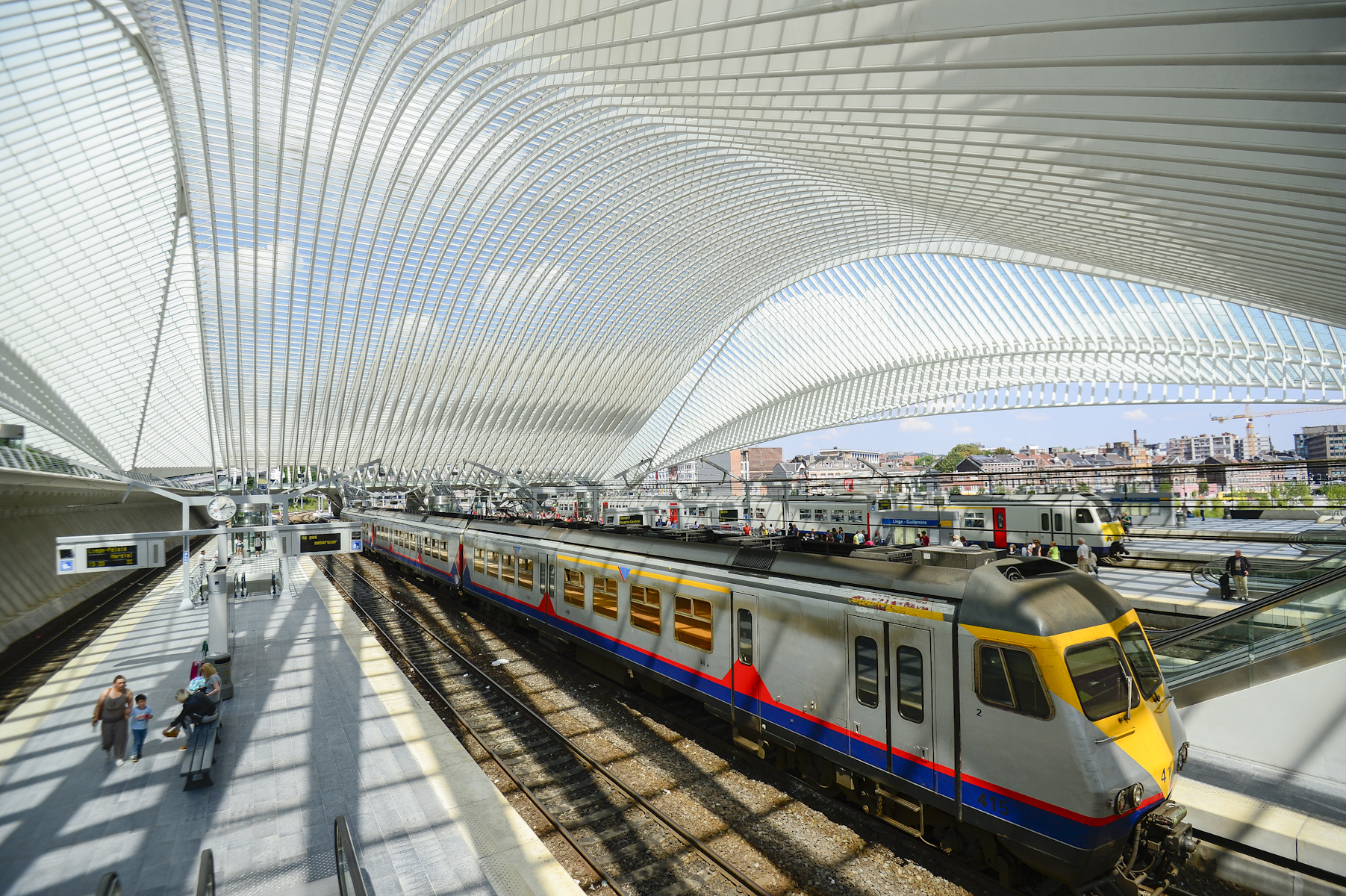
Guillemins train station in Liege. Credit: Belga / Laurie Dieffembacq
Costs
Tickets for Belgian trains can be bought online via the website, the SNCB app, in train stations, at ticket machines, or in ticket offices.
Many Belgians complain that the SNCB is often late and costs too much. Travel for adults, even relatively short distances, easily costs over €10. Trains to airports are more expensive as a supplement has to be paid. Taking bicycle on the train also requires paying a supplement (€4 per journey).
However, the company does offer a wide array of discounts. Some are based on age: children under the age of 12 travel for free with their parents, while regular tickets, school season tickets and 10-journey passes for young people under the age of 26 are offered at a reduced rate. Passengers over the age of 65 can buy a "Senior Ticket", offering a reduced rate of €8.30 on every journey.
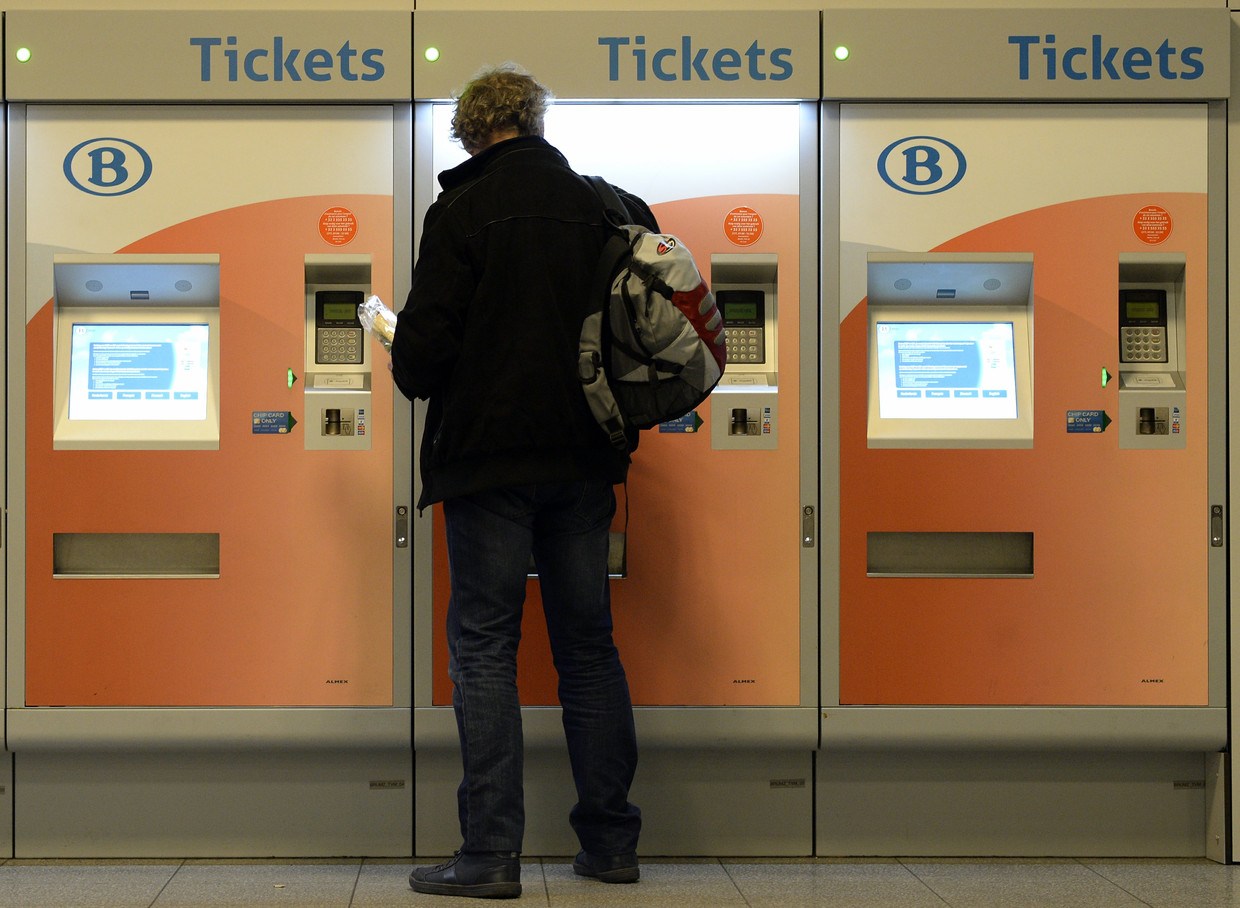
Credit: Belga
For weekend trips, it offers half-price return travel to any destination in Belgium with a "Weekend Ticket" from Friday evening (19:00) until Sunday evening. The "Standard Multi" offers 10 journeys for €102. Finally, various Season Ticket options reduce the daily cost for people travelling by train regularly.
Anyone boarding a train without a ticket must buy one and pay the "Board Fare" (€9 on top of the ordinary ticket price). Failure to do so results in an "irregularity certificate C170" – essentially a €90 fine – unless they can provide a valid reason for not buying a ticket, in which case the €9 or €90 can be reimbursed afterwards.
Brussels
STIB operates all metros, trams and most buses in Brussels (some are TEC buses servicing the capital from Wallonia and De Lijn buses from Flanders). Public transport starts at around 06:00 and runs until midnight, or later on certain events such as National Day or New Year's Eve.
On Friday and Saturday nights, there are 11 "Noctis Bus" lines (STIB's night bus service). These run every half hour from midnight to 03:00 and all depart from Brussels-Central railway station. Fares are the same as daytime buses.
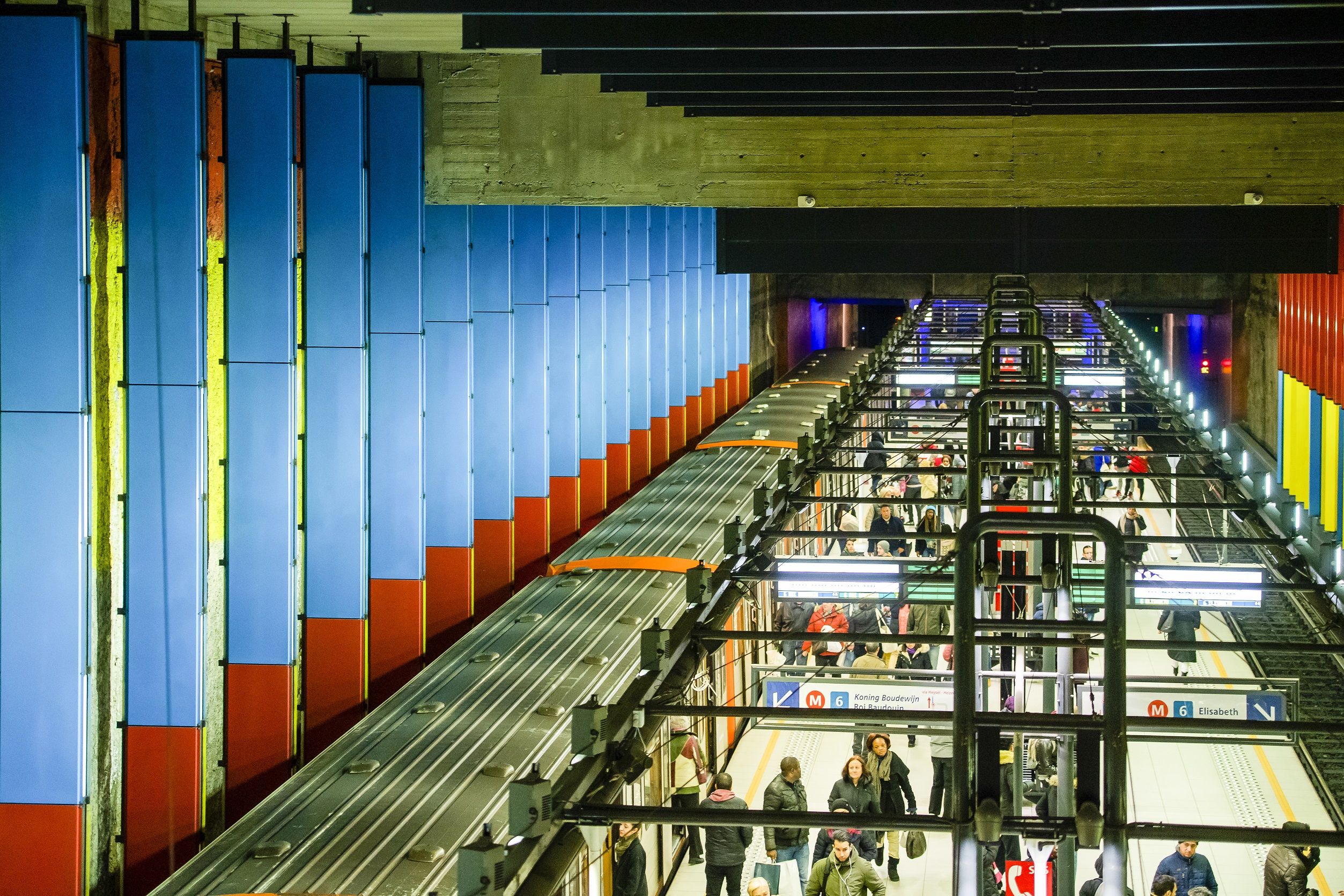
A Brussels metro station. Credit: STIB
STIB and Brussels Mobility launched a multimodal app named 'Floya' in 2023. This brings together information on the entire mobility offer in Brussels on one platform. The app includes (real-time) information for travel on foot, by bicycle, e-scooter, bus, tram, metro, train, shared car and taxi. Users can search routes according to their preference and pay for tickets or book shared e-scooters, bikes or cars.
Costs
STIB also offers discounts based on passengers' age. Passengers up to the age of six can travel free across the entire network without a ticket or a pass.
Passengers aged 12 to 17 are eligible for the school season ticket, costing €12 per year to use all public transport in the region. Since 2022, any Brussels resident aged 18 to 24 can buy an annual student STIB pass for just €12 – a huge reduction from the previous price of €499 that non-students had to pay. Passengers need a reloadable MOBIB card (€6) to buy season tickets.
Individual rides can be paid by contactless payment (debit or credit) in stations or on all public transport vehicles. STIB also launched the "Digital Ticket", allowing passengers to buy Brupass and Brupass XL tickets via the STIB app and travel on public transport in and around Brussels (including the SNCB, TEC and De Lijn). This ticket comes with a QR code that can be validated on every vehicle or station. The app also offers a 10-ride ticket at a reduced price.
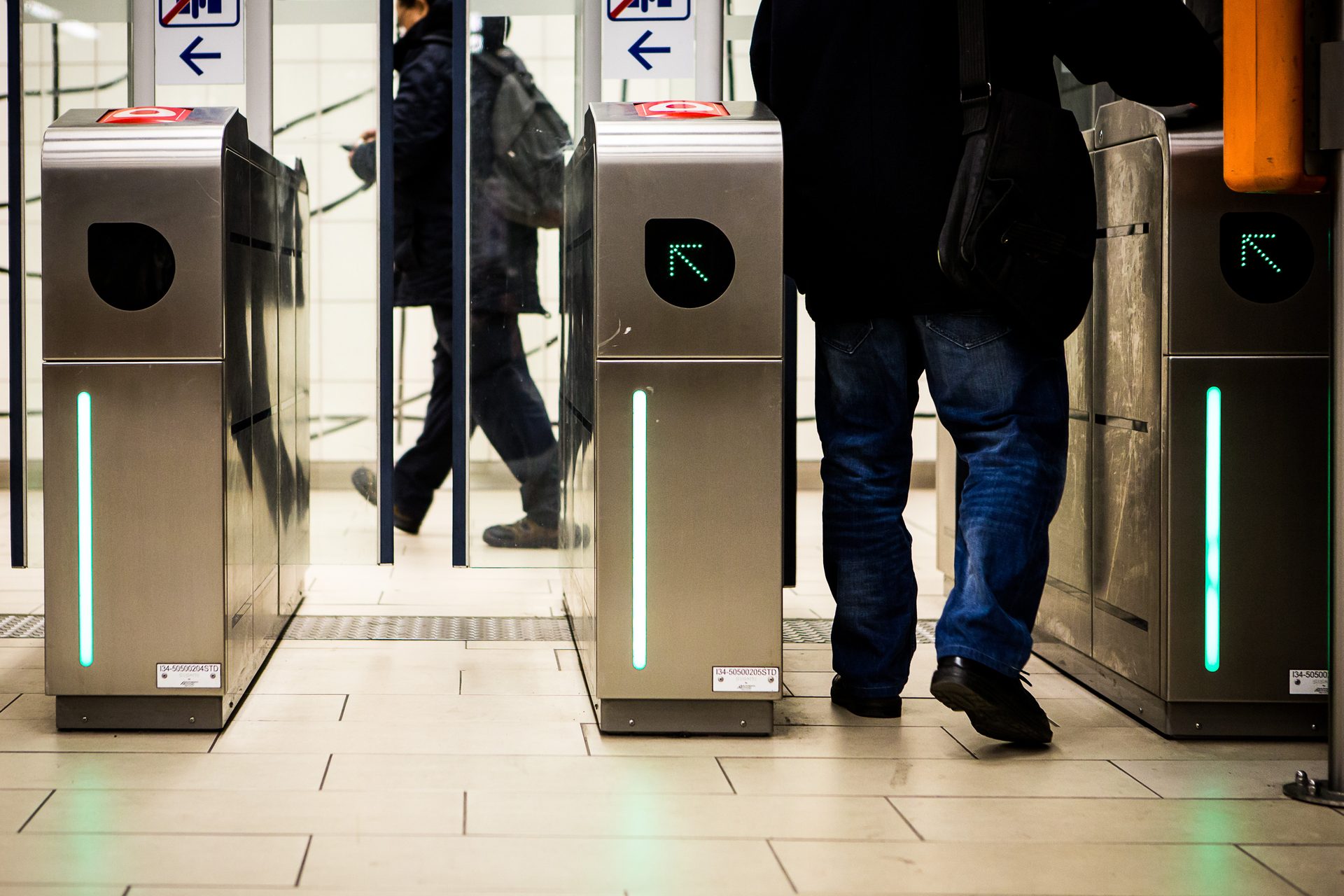
People scanning through ticket gates at a Brussels metro station. Credit: Belga/Siska Gremmelprez
One-journey and one-day tickets are still available in paper form and can be bought at the "KIOSK counters" in metro stations, the GO vending machines, at STIB information offices, BOOTIK merchant agencies and several daily newspaper vendors.
One journey on any STIB bus, tram or metro costs €2.70 for a paper ticket (or €2.20 when paying contactless). The ticket is valid for one hour after activation and includes vehicle changes. A day ticket costs €8.50 when bought in the vending machines or kiosk. Contactless payments are capped at €8 per day.
Note that travelling to and from Brussels Airport on bus line 12 requires an Airport2City ticket, which costs €8 (or €7.50 when paying contactless).
This price calculation page shows what ticket type is best. Passengers without a valid ticket or who have forgotten to validate their ticket risk an administrative surcharge or a fine of between €107 and €408.
Flanders
All buses and trams, from those in the major cities to the vehicles connecting small towns in Flanders, are operated by De Lijn. While services end relatively early in rural areas, in cities such as Ghent, Leuven and Bruges some services continue until around 02:00.
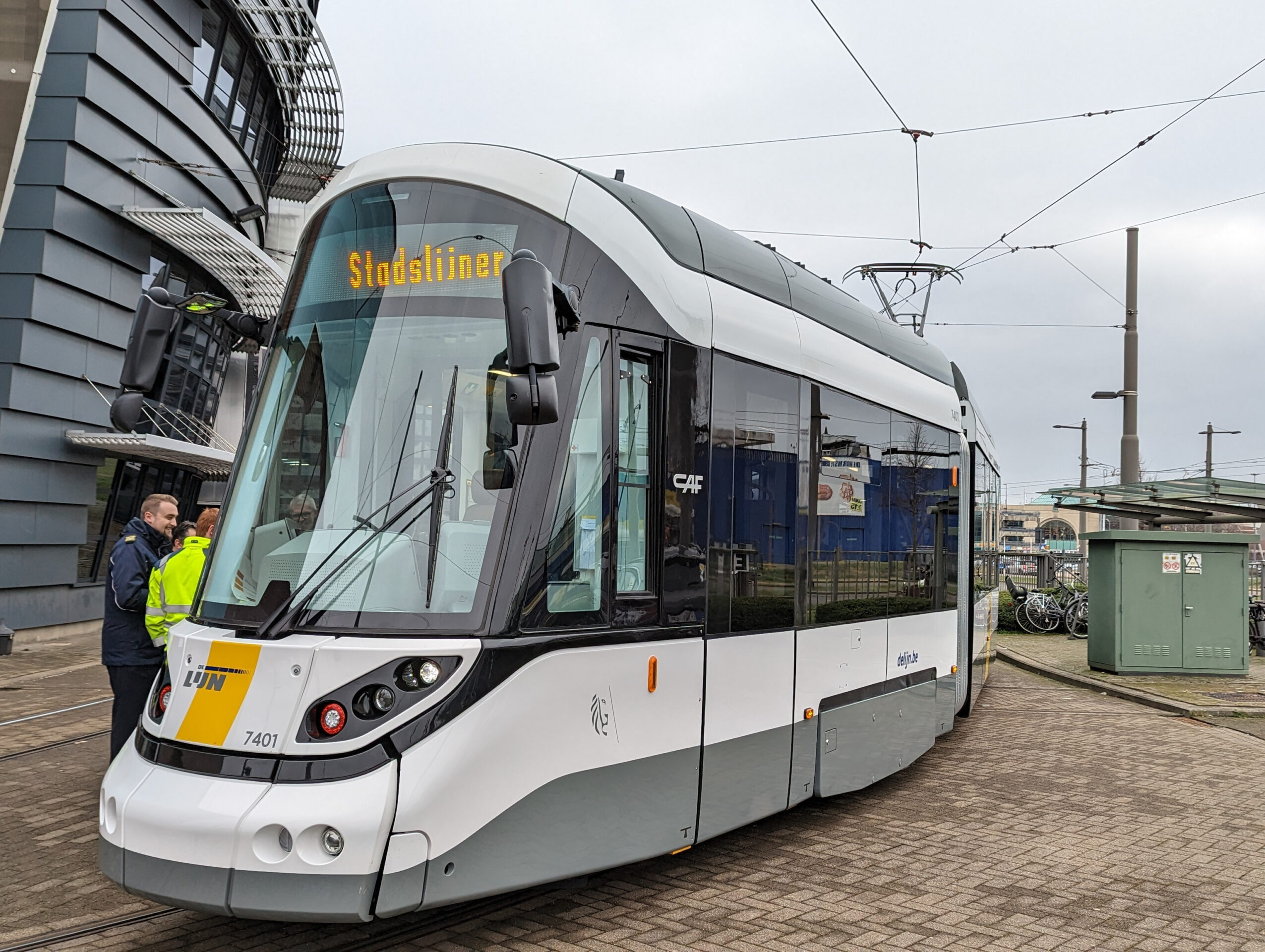
Antwerp tram. Credit: Belga / Tijs Vanderstappen
De Lijn underwent its most significant reform to date at the start of 2024. This aimed to optimise bus routes and strengthen services in the busiest areas. But the changes met much criticism, as some 3,000 stops were scrapped and the names and routes of many lines were changed. This reduced the number of buses servicing some neighbourhoods as they follow main roads instead.
Costs
Tickets can be bought on De Lijn's website, via the company's app, by contactless payment on board trams and buses, or for some options by texting DL to 4884. The cost is the same on all payment methods. Children up to the age of five always travel for free with De Lijn.
Passengers who only occasionally take public transport in Flanders can opt for a single ticket for €2.50, or a 10-journey pass for €17. A day ticket for use on any tram and bus costs €7.50. More regular passengers can opt for the 50-journey ticket, costing €75. This is valid for three months after purchase.
For daily users, a season ticket is the best option. Those aged 6 to 24 can buy a Buzzy Pazz, while an Omnipas is aimed at adults aged 25 to 64. For over-65s, there is the Omnipas 65+.
Fines for riding public transport without a valid ticket range from €50 to €400.
Wallonia
TEC, which stands for "Transport En Commun", is Wallonia's public transport operator. Its network is made up of buses; a metro will again run from 2027. The company does not operate services at night.
Costs
Children under six travel for free in Wallonia without any ticket or pass while those aged 6-11 are also offered a free season pass but must have a personal MOBIB card (which costs €5 and is valid for five years). A TEC season ticket for 18 to 24-year-olds and people over the age of 65 costs €12. There is no discount for 12 to 17-year-olds.
A single ticket costs €2.10 when travelling between two zones, €3 for the entire network (excluding the Express lines) and €5 for the entire network including the Express line. A one-day ticket costs €4, and €8 for the full network including the Express line.
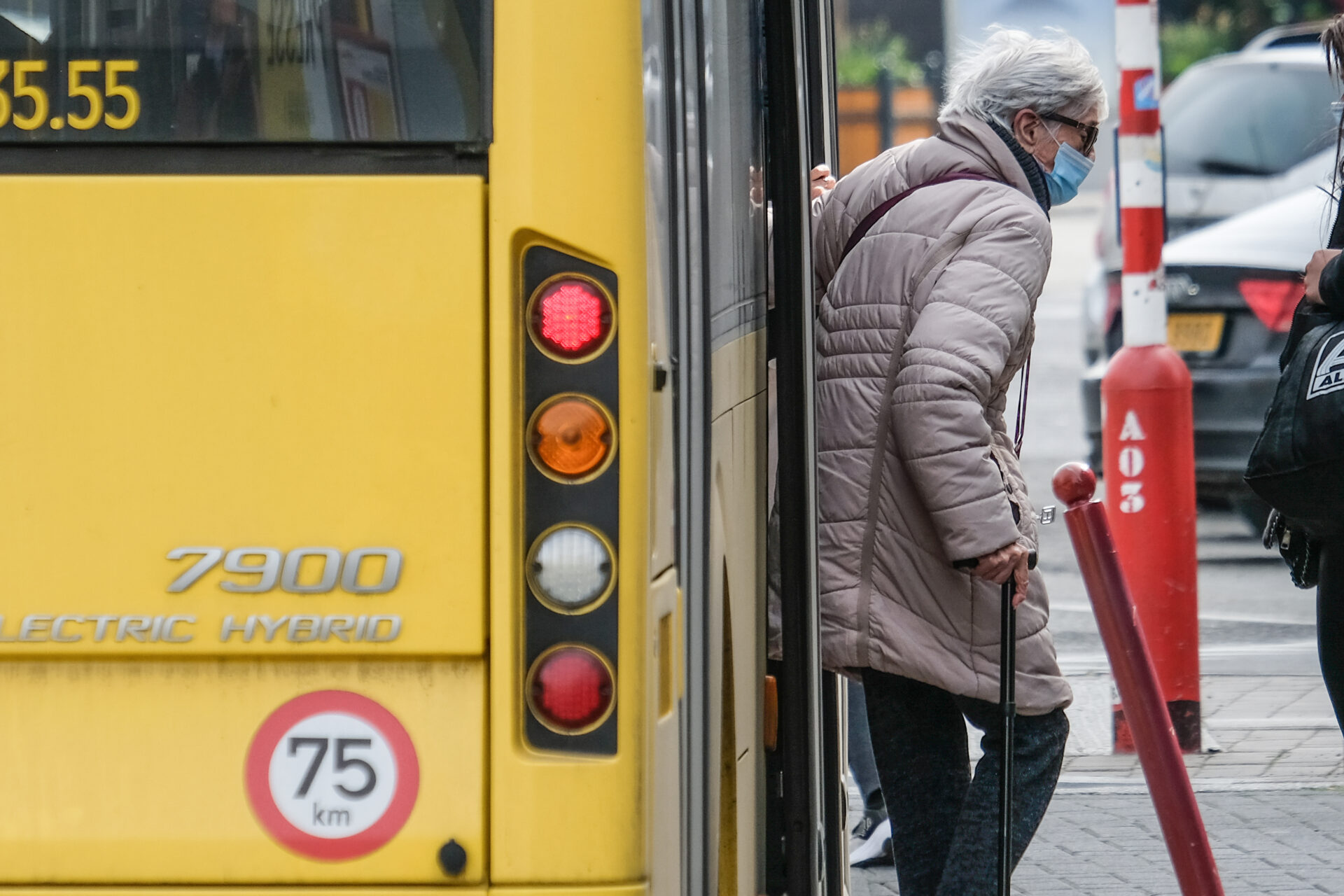
Credit: Belga/ BRUNO FAHY
Tickets can be bought via the e-Shop (TEC website), the TEC app, at one of the 200 vending machines throughout Wallonia, a TEC sales outlet or a so-called "Points TEC" (over 1,000 local sales outlets such as bookshops and small supermarkets).
Single trips, multi-ride tickets, season passes and reduced fares can be loaded onto a personal MOBIB card, but a disposable card, pre-loaded with a one-day, 3-day or multi-trip ticket is also available for less frequent travellers. This price calculation page shows the best ticket for a given journey.
TEC fines for people travelling without a ticket range from €10 to €300 depending on whether a passenger has forgotten their pass, forgot to validate their ticket or failed to purchase a ticket.

